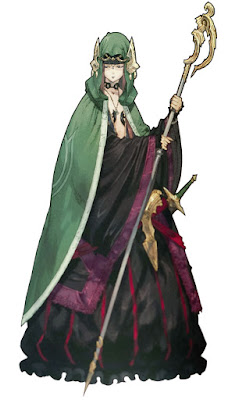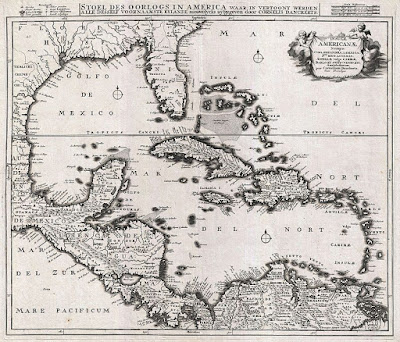Extensive rewrite for the 5th edition Warlock class. It’s actually my favorite to play in 5e, but there are many interlocking abilities. This version
- conforms more to the pattern established by other classes
- has abilities that stand alone, and don’t require extensive cross-referencing
- smashes the cleric, druid, and warlock together. I want to get 5e down to four or five classes and get a wider spread of character archetypes with kits. Ideally, I’ll have fighter, warlock/witch, rogue, and wizard
- is based on archetypal things that witches do, like turn into animals, call up spirits, or brew potions.
- has an element of risk. Shapeshifting warlocks can get stuck as animals, potions can go wrong, familiars can get loose.
- makes some assumptions about the kind of campaign. Probably can’t go toe to toe with a monster of equivalent CR the way most classes-as-written can, most of the healing is shunted off to potion-making, so healing is a bit more important as a resource, and I cut out damaging cantrips.
WARLOCK/WITCH
a Type V D&D class
 |
| from tactics ogre: wheel of fortune |
CLASS FEATURES
 |
| click to make legible |
HIT POINTS
Hit Dice: 1d6 per warlock level
Hit Points at 1st Level: 1d6 + Constitution modifier, minimum 4
Hit Points at Higher Levels: 1d6 + Constitution modifier per warlock level after 1st
PROFICIENCIES
Armor: Light armor
Weapons: Simple weapons
Tools: Choose one from herbalism kit, poisoner’s kit, and alchemist’s kit
Saving Throws: Wisdom, Charisma
Skills: Choose two from Animal Handing, Arcana, Deception, History, Intimidation, Nature, Religion, and Survivalism
PACT MAGIC
Cantrips. You know two cantrips of your choice from the warlock spell list. You learn additional warlock cantrips of your choice at higher levels, as shown on the Cantrips Known column of the Warlock table.
Spell Slots. The Warlock spellcasting table shows how many spell slots you have to cast spells of 1st level and higher. To cast one of these spells, you must expend a slot of the spell’s level or higher. You regain all expended spell slots when you finish a long rest.
Spells Known of 1st level and higher. You know one 1st level warlock spell of your choice. The Spells Known column on the Warlock spellcasting table shows when you learn more warlock spells of 1st level or higher. Each of these spells must be a level for which you have slots. When you gain a level, you can replace one of the warlock spells you know with another spell of your choice from warlock spell list that you have slots for.
Spellcasting ability. Wisdom is your spellcasting ability for your warlock spells. You use your Wisdom whenever a spell refers to your spellcasting ability. In addition, you use your Wisdom modifier when setting the saving throw DC for a warlock spell you cast and when making an attack roll with one.
Spell Save DC = 8 + proficiency bonus + Wisdom modifier
Spell Attack modifier = proficiency bonus + Wisdom modifier
Spell Recovery. When you finish a short rest, you can choose expended spell slots to recover. The spell slots can have a combined level equal to or less than half your level (rounded up).
Spellcasting Focus. You can use an arcane focus as a spellcasting focus for your warlock spells
OTHERWORLDLY PATRON
Pick one of the following Otherworldly Patrons. At levels 1, 5, 9, 13, and 17, your patron teaches you additional spells; add them to your list of spells known and do not count them towards your limit.
SPIRIT OF THE HEAVENS
 |
| from mononoke |
1st: bless, purify food and drink
5th: augury, lesser restoration
9th: clairvoyance, remove curse
13th: divination, locate creature
17th: greater restoration, scrying
ANCIENT BEAST
 |
| from black desert |
1st: animal friendship, speak with animals
5th: animal messenger, spike growth
9th: plant growth, water walk
13th: conjure woodland beings, dominate beast
17th: awaken, commune with nature
STORM GOD
 |
| from final fantasy |
1st: create or destroy water, thunderwave
5th: blindness/deafness, gust of wind
9th: call lightning, sleet storm
13th: control water, ice storm
17th: cone of cold, planar binding
FIRST GIFT
At level 3, your patron rewards you for your service. Choose one of the following First Gifts.
FIRST GIFT: BORROWED SKIN
You can polymorph into any beast with a CR equal to or less than 1/3 your level. When you cast polymorph in this manner, it lasts until you lose concentration, with no other limits on duration. If you fail your Constitution Saving throw to maintain concentration with an odd result, you become trapped in your beast form until you take a short rest. If you reach 0 HP while in your animal form, you do not transform back, but continue to deduct hit points from your true form’s HP pool. You must take a short rest before using this ability again.
FIRST GIFT: BRASS RING
Pick one of the following: imp, sprite, pseudodragon, or a single beast with a CR of 1/2 or less.
As an action, you can summon that creature into an empty space within 15 ft. The servant is friendly to you and your companions. Roll initiative for the servant, which has its own turns. It obeys any verbal commands that you issue to it (no action required by you). If you don’t issue any commands to the servant, it defends itself from hostile creatures but otherwise takes no actions. The servant disappears when it drops to 0 hit points or when you dismiss it as an action. If the servant dies, you cannot use this ability again until you take a long rest. The servant recovers all of its HP when you take a long rest.
This ability requires concentration to maintain. If your concentration is broken, you lose control of the servant, it becomes hostile toward you and your companions, and it might attack. An uncontrolled servant can’t be dismissed by you.
When you take a long rest, you can choose a different creature on the list of eligible creatures to summon. You must take another long rest to choose again. If you perform a 10 minute ritual using the remains of a fey, elemental, fiend, or beast-type creature with a CR equal to or less than 1/4 your level, you can add it to the list of creatures you can summon with this ability.
FIRST GIFT: STRANGE KNOWLEDGE
Learning. If gain the following proficiencies if you do not already have them:
- Arcana skill
- herbalism kit
Ritualist. If any of the warlock spells you know or learn have the ritual tag, you can cast them as rituals. If you find any ritual spell in a scroll or spellbook, or see it cast, you can attempt to recreate it as a ritual. This requires an Intelligence (Arcana) check vs a DC of 11 + Spell Level. If the spell exceeds half your level (rounded up), you make the roll at disadvantage. If you succeed the check, the ritual proceeds as it should; if you fail, catastrophe strikes as determined by the DM).
Potion-maker. When you find a spell with a level of 5 or less, and that spell has a range of Self or Touch, you can memorize it as a recipe. This process takes 50 gp per spell level and 1 hour per spell level, as you impress the formula into your mind with the aid of exotic drugs. You can learn as many recipes as you like.
You can brew potions using your recipe book. This process requires
- 50gp/spell level (in ingredients)
- 1 hour/spell level (fretting over alembics and stirring cauldrons)
- A Wisdom (herbalism kit) check with a DC of 11 + spell level. If the spell exceeds half your level (rounded up), you make the roll at disadvantage
If you fail a check, the potion functions as a vial of poison (the DM should roll this check outside of the player’s view and not tell them the result). If a spell can be cast at multiple spell levels, you can choose which at the time of brewing, but you must pay the extra money and take the extra time. A potion causes the exact same effects as the spell it is based off of on the creature that ingests it. You count as the caster if it comes up in the spell description.
The number of potions you have brewed cannot exceed half your level (rounded up). If you exceed this limit, a random potion you have brewed loses its potency.
SECOND GIFT
At level 11, your patron rewards you for your continuing service. Choose one of the following Second Gifts.
SECOND GIFT: WITCH GARDEN
You acquire a home and garden in the form of a 1 acre demiplane. Its exact nature, climate, and contents are a matter between you and your DM. The garden is never more than half a day’s travel away, no matter where you go or where you are. Only you know the way there, though others can follow you (even without your knowledge)
SECOND GIFT: UNBREAKABLE OATH
Anyone who signs a contract with or swears an oath to you must make a Charisma save vs your spell save DC in order to break its terms. They only must follow the letter, not the spirit of the agreement. Paradoxical promises are null and void.
SECOND GIFT: WITCH FLIGHT
You can cast fly on yourself without expending a spell slot. When you cast fly in this manner, it lasts until you lose concentration, with no other limits on duration. You must take a short rest before you can use this ability again.
FINAL GIFT
At level 18, your patron rewards you for your continuing service. Choose one of the following Final Gifts.
FINAL GIFT: HEART’S DESIRE
Your patron will grant you a wish when you beseech them directly, requiring no action on your part and sparing you the ill effects listed in the spell’s description. However, you must perform an onerous service for your patron before they will grant you a wish again.
FINAL GIFT: MALEFICENCE
You can shapechange yourself into a dragon-type creature without any material component. You receive advantage on Constitution saving throws to maintain concentration for this ability, and you must take a long rest before using this ability again.
FINAL GIFT: WAKE THE DEAD
You can cast Animate Undead or Create Undead as a 9th level spell without material components. You must take a long rest before you can use this ability again.
ABILITY SCORE INCREASE
At levels 4, 8, 12, 16, and 19, you can increase one ability score by 2 or two ability scores by 1. You cannot increase an ability score above 20.
SPELL LIST CHANGES
WARLOCK CANTRIPS
thaumaturgy
druidcraft
control flames*
gust*
shape water*
mold earth*
friends
mending
message
minor illusion
Asterisked cantrips are from the Elemental Evil Player’s Companion (which is free).
ADDITIONAL FIRST LEVEL WARLOCK SPELLS
command
disguise self
feather fall
fog cloud















